Zoek artiesten, songs en albums op in onze database.
- F♯ A♯ ∞ (1998)
- Nervous, Sad, Poor…
- Bleak, Uncertain, Beautiful…
- Slow Riot for New Zerø Kanada (1999)
- Moya
- Lift Your Skinny Fists Like Antennas to Heaven (2000)
- Sleep: Murry Ostril [They Don't Sleep Anymore On The Beach], Monhelm, Broken Windows, Locks of Love Part III
- Storm: Lift Your Skinny Fists Like Antennas to Heaven, Gathering Storm, Cancer Towers on Holy Road Hi-way
- Static: Terrible Canyons of Static, Chart #3, World Police and Friendly Fires, The Buildings They Are Sleeping Now
- Antennas To Heaven: Moya Sings Baby-O, Edgy Swingset Acid, She Dreamt She Was A Bulldozer She Dreamt She Was Alone in An Empty Field, Deathkamp Drone, Antennas To Heaven
- Yanqui U.X.O. (2002)
- 09-15-00
- 09-15-00 (cont.)
- Rockets Fall on Rocket Falls
- Motherfucker=Redeemer
- motherfucker=redeemer (cont.)
- Allelujah! Don't Bend! Ascend! (2012)
- Mladic
- Their Helicopters' Sing
- We Drift Like Worried Fire
- Strung Like Lights at Thee Printemps Erable
- 'Asunder, Sweet And Other Distress' (2015)
- Piss Crowns Are Trebled
- Luciferian Towers (2017)
- Undoing a Luciferian Towers
- Bosses Hang, Pt. I
- Bosses Hang, Pt. II
- Bosses Hang, Pt. III
- Fam/Famine
- Anthem for No State, Pt. I
- Anthem for No State, Pt. II
- Anthem for No State, Pt. III
- “NO TITLE AS OF 13 FEBRUARY 2024 28,340 DEAD” (2024)
- BABYS IN A THUNDERCLOUD
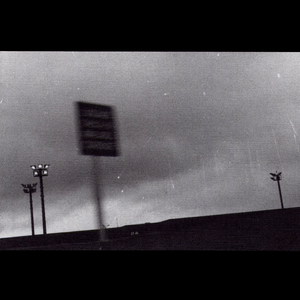
F♯ A♯ ∞ is the debut album of the Canadian post-rock band Godspeed You Black Emperor! (later punctuated Godspeed You! Black Emperor). It was released twice, first in 1997 by Constellation Records and then again in 1998 by Kranky Records. Stylistically, the album is devoid of lyrics and mostly instrumental, featuring lengthy songs segmented into movements and wide dynamics. The album was recorded at the Hotel2Tango in the Mile End of Montreal. The recording studio is personally owned and operated by select members of the band and their acquaintances, which ensured the band an immense role in the production of the record. When first released, it was done so in very limited quantities, and was mainly distributed through live performances and word of mouth. Initially, interest in the album was limited due to the small number produced and the band's lack of recognition. After the album's republication and several magazine interviews, the band became considerably more well-known and accessible. Reception of the record was generally positive, and would go on to typify the band's distinct orchestral sound. The music of F♯ A♯∞ is known for its wide volume changes, dark thematics, and lengthy songs separated into movements. All of the tracks feature a number of field recordings and sampled sounds, once referred to by David Keenan of The Wire as "eschatological tape loops." Therefore, the overall theme of the album is often pinned as apocalyptic. Indeed, English director Danny Boyle was heavily inspired by the album during the making of 28 Days Later. During an interview with guardian.co.uk, he explained, "I always try to have a soundtrack in my mind [when creating a film]. Like when we did Trainspotting, it was Underworld. For me, the soundtrack to 28 Days Later was Godspeed. The whole film was cut to Godspeed in my head." The opening track, "The Dead Flag Blues", begins with an ominous introduction which originates from an unfinished screenplay by guitarist Efrim Menuck. Backed by a string melody, the speaker describes a derelict city, where the government is corrupt and the inhabitants are drugged. The introduction is followed by a quiet interlude which develops into a Western-themed melody, and is capped off by an upbeat glockenspiel and violin duet. The second track, "East Hastings", is named after a street in Vancouver's blighted Downtown Eastside. It begins with bagpipes reprising the theme of "The Dead Flag Blues" and backing the shouts of a street preacher. The sermon slowly quiets, and is replaced with the movement "The Sad Mafioso...", an edited version of which appeared in the film 28 Days Later. Interestingly, the movement contains a portion where the band quietly sings with the melody—a rare occurrence of intentional vocals. A The track concludes with a series of electronic noises and buzzing until throbbing bass takes over. The final track, "Providence", is considerably longer than the first two, coming in around thirty minutes in length. James Oldham of NME described it as "part The Good, the Bad and the Ugly and part spiritualized drone freakout." After the introduction, a cello piece is accompanied by a guitar and violin. Percussion is added to the melody which peaks then quiets, and is followed by a distorted singing woman and a military-themed tune. The sung phrase "Where are you going? Where are you going?" which follows is sampled from the song "By My Side," from the 1970 musical Godspell. After four minutes of silence, an outro named after late blues musician John Lee Hooker is performed. The title of the album is pronounced F-sharp, A-sharp, Infinity. This is a reference to the keys in which each side of the record begins and to the endless loop at the end. The compact disc version does not contain the loop. The original five-hundred records are well-known for their unique packaging and contents. The record jackets were handmade by the band, their record label, and local Montreal artists. One of three original photographs—depicting a watertower, train, or road sign—was glued onto the cover. The sleeve and jacket made no mention of the track titles. They were instead scratched into the run-off groove of the record, accompanied by the catalog number and side indication. Inside of the jacket was an envelope filled with inserts. The contents included an old handbill, the album's credit sheet, a picture drawn by guitarist Efrim Menuck, and a penny crushed by a train. A silk-screened image dedicated to the blues musician Reverend Gary Davis was also included in the jacket. Barb Stewart of Stylus Magazine and Mike Galloway of NOW called the packaging and inserts "beautiful." After numerous repressings, the assembly process was streamlined. However, the record still ships, to this day, with virtually the same packaging elements as the originals. The compact disc version of the album is much simpler artistically. Guitarist David Bryant once referred to the packaging as a "jewel-cased CD monstrosity," preferring the original handcrafted record. The photograph of a road sign was chosen as the cover image, and was enlarged and darkened significantly from the original. Inside of the case are liner notes and images, including the "Faulty Schematics of a Ruined Machine," the hand drawn picture by Efrim Menuck present in the record. The first publication of F♯ A♯ ∞ was reviewed by a scant number of critics. Stylus Magazine wrote that the record was "innovative and inventive" and that it "stakes out unique territory in a world overrun with hackneyed experimentation." Gordon Krieger of Exclaim! described it as a "slow soundtrack of regret and desire, equal parts morose and expectant." Montreal-based Hour magazine said the lengthy tracks "could be really pretentious but the sounds [the band] make are way too cool to be merely coldly superior." Reviews of the second publication were generally positive and more wide-spread. Marc Gilman of Allmusic said that "the music on [the] album is unique and powerful" and that someone "would be hard-pressed to find any imitators of [Godspeed's] revolutionary musical form." The Magnet commented that the three tracks can be "served up as staggering psychedelia for a headphone or surround-sound context," voting it #38 on their list of the best albums from 1993 to 2003. The NME called it a "genuine classic," noting the variety of sounds present in the album. Pitchfork critic Ryan Schreiber remarked that, of the many experimental bands around, Godspeed You Black Emperor! were "one of the few that [haven't] left out beauty and emotion in their pieces." Pitchfork later ranked the album #45 on their list of the top 100 albums of 1990s. Read more on Last.fm.
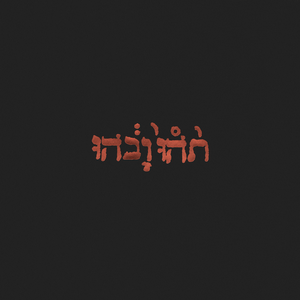
-
geen volledige tracklist beschikbaar.
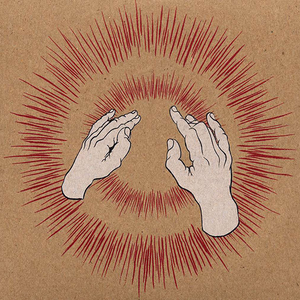
Lift Your Skinny Fists Like Antennas to Heaven (also known as Lift Yr. Skinny Fists Like Antennas to Heaven! and Levez Vos Skinny Fists Comme Antennas to Heaven) is the second studio album by Canadian post-rock group Godspeed You! Black Emperor, released in 2000 as a double album. The four tracks on Lift Your Skinny Fists Like Antennas to Heaven are composed of individually named internal movements. The whole album is instrumental, except for sampled voice inserts. The samples on the album are often used to send some satirical or political message. The inner panels of the vinyl edition released by Constellation contain a diagram used to illustrate the relative lengths of movements within the four tracks; each movement is drawn by Efrim Menuck,[1] as a rectangular block with its length determined by the proportion of the track it comprises. Some of the blocks are shifted slightly upwards to show an increase in intensity. The movement title and the numerical length are denoted either above or below the square. The same diagram is provided as a paper insert in the CD edition from Kranky. The inside cover drawings were taken from William Schaff's "Notes to a Friend; Silently Listening No. 2", and the cover was a redrawn version of one of the pieces on "Notes to a Friend", by John Arthur Tinholt. The flip side of the vinyl contains various images taken by the band. Read more on Last.fm.
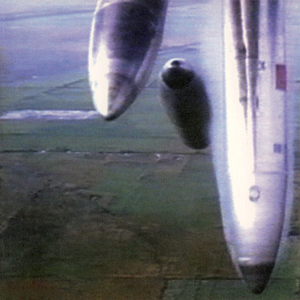
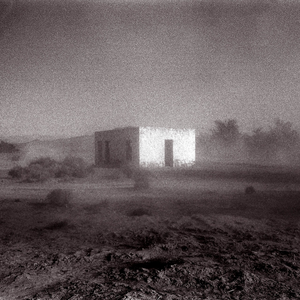
'Allelujah! Don't Bend! Ascend! (sometimes stylized as 'ALLELUJAH! DON'T BEND! ASCEND!) is the fourth studio album by Canadian post-rock band Godspeed You! Black Emperor, released in 2012. After re-forming in 2010, the group went on tour and silently released the album at a concert in Boston on October 1st, 2012, with official release dates intended for the 15th of October in Europe and the 16th in other countries. The vinyl edition of the album packages the lengthier tracks "Mladic" and "We Drift Like Worried Fire" on a 12" LP accompanied by a 7" featuring the shorter, "drone" tracks "Their Helicopters' Sing" and "Strung Like Lights at Thee Printemps Erable". The CD edition of the album compiles all four tracks on a single disc with a differing order to the vinyl edition. "Mladic" and "We Drift Like Worried Fire" are re-workings of unreleased live tracks previously known as "Albanian" and "Gamelan", which have been performed live as far back as 2003. The vinyl issue of the record does not list the lengths of the tracks. Read more on Last.fm.
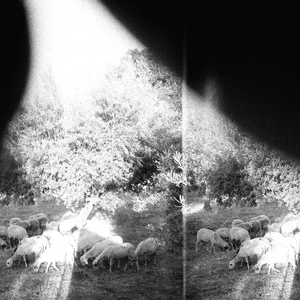
-
geen volledige tracklist beschikbaar.
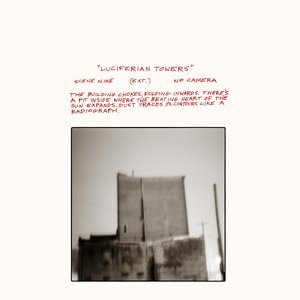
Luciferian Towers (stylized as "Luciferian Towers") is the sixth studio album by Canadian experimental band Godspeed You! Black Emperor, released on 22 September 2017. Information about the album was leaked via a press release on 13 July 2017, prior to the official announcement on 2 August 2017. Read more on Last.fm.
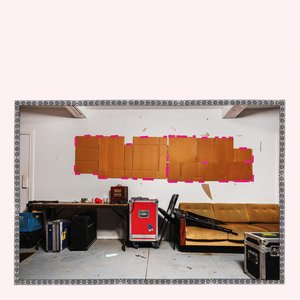
-
geen volledige tracklist beschikbaar.
THE PLAIN TRUTH== we drifted through it, arguing. every day a new war crime, every day a flower bloom. we sat down together and wrote it in one room, and then sat down in a different room, recording. NO TITLE= what gestures make sense while tiny bodies fall? what context? what broken melody? and then a tally and a date to mark a point on the line, the negative process, the growing pile. the sun setting above beds of ash while we sat together, arguing. the old world order barely pretended to care. this new century will be crueler still. war is coming. don’t give up. pick a side. hang on. love. GY!BE Read more on Last.fm.